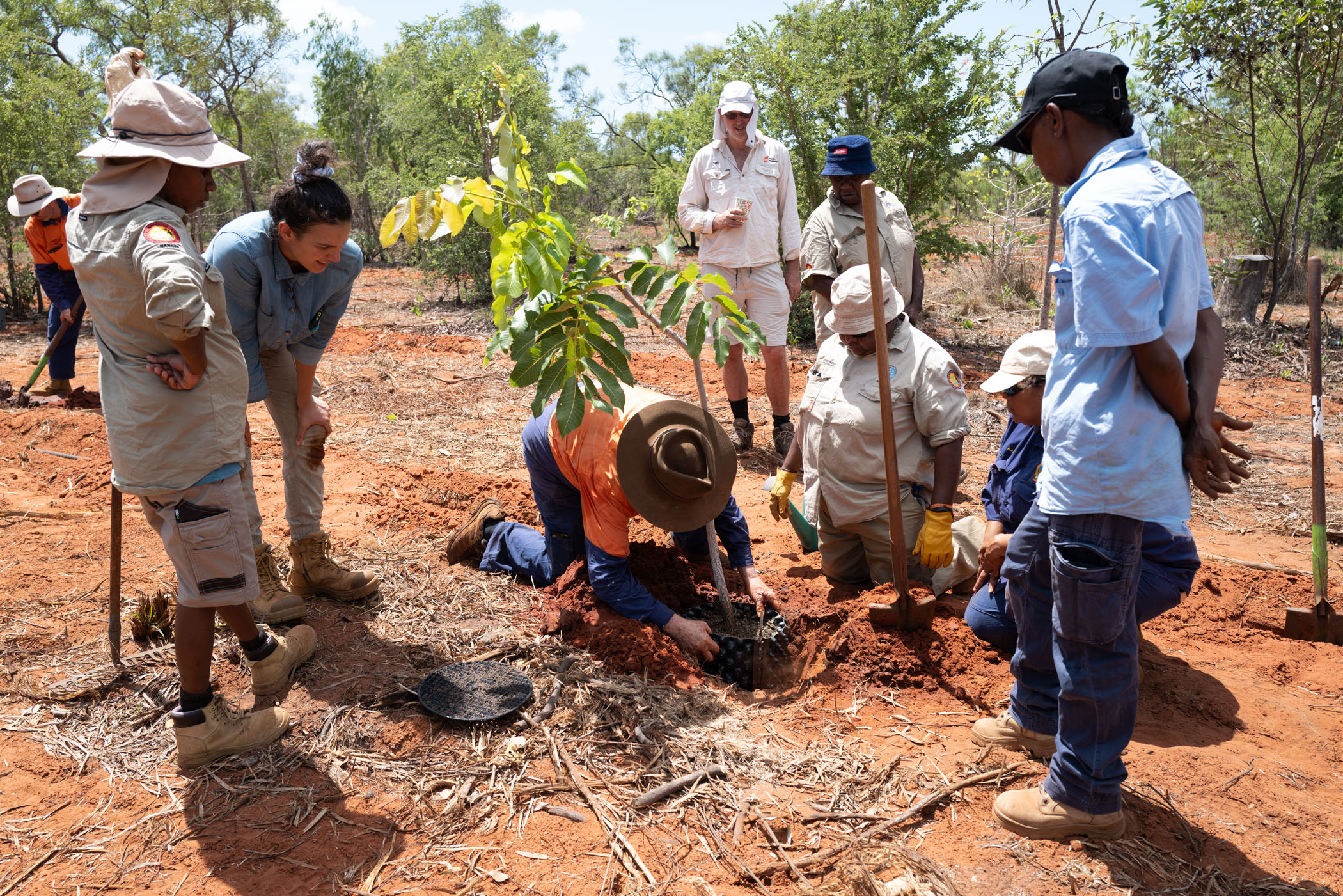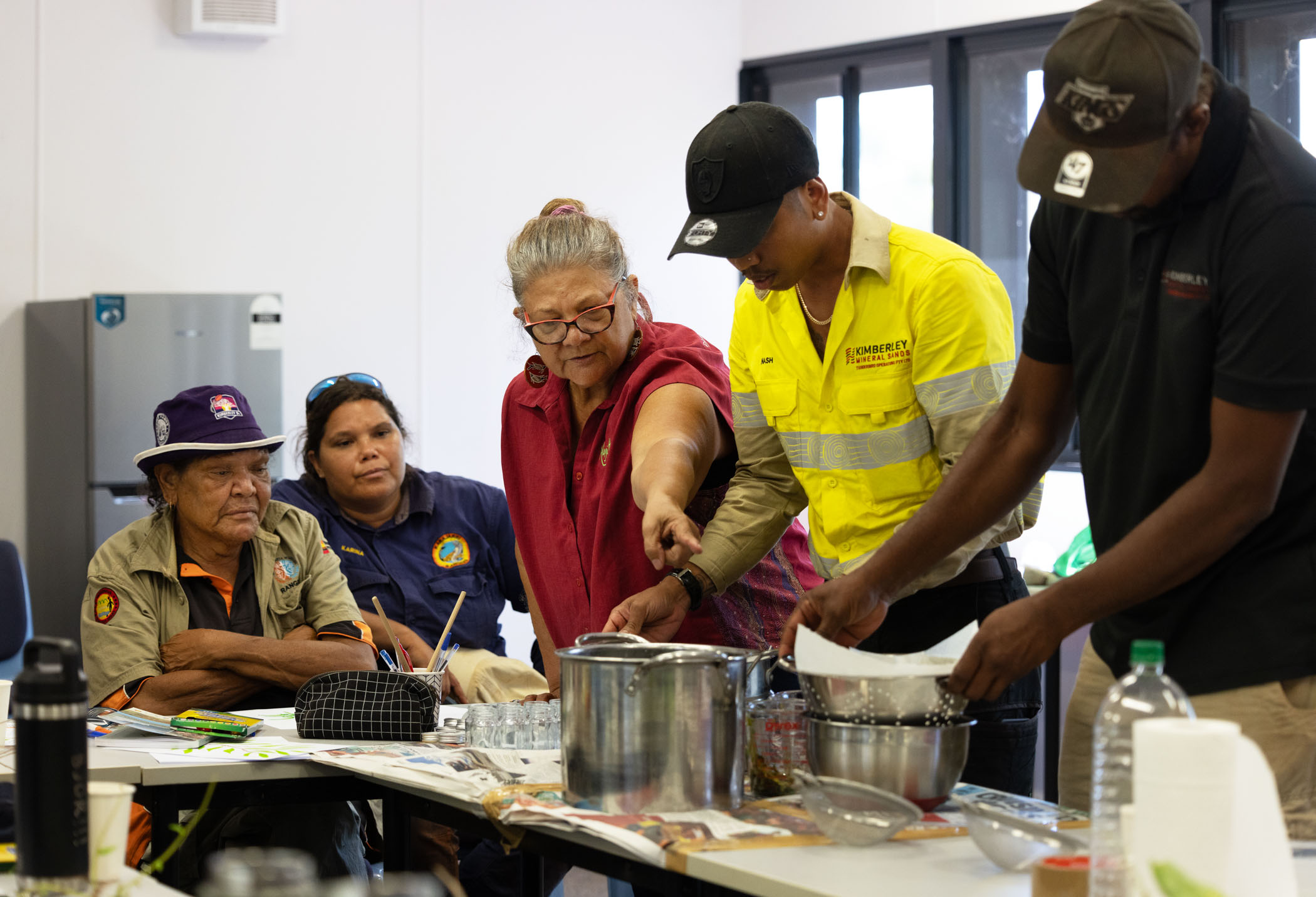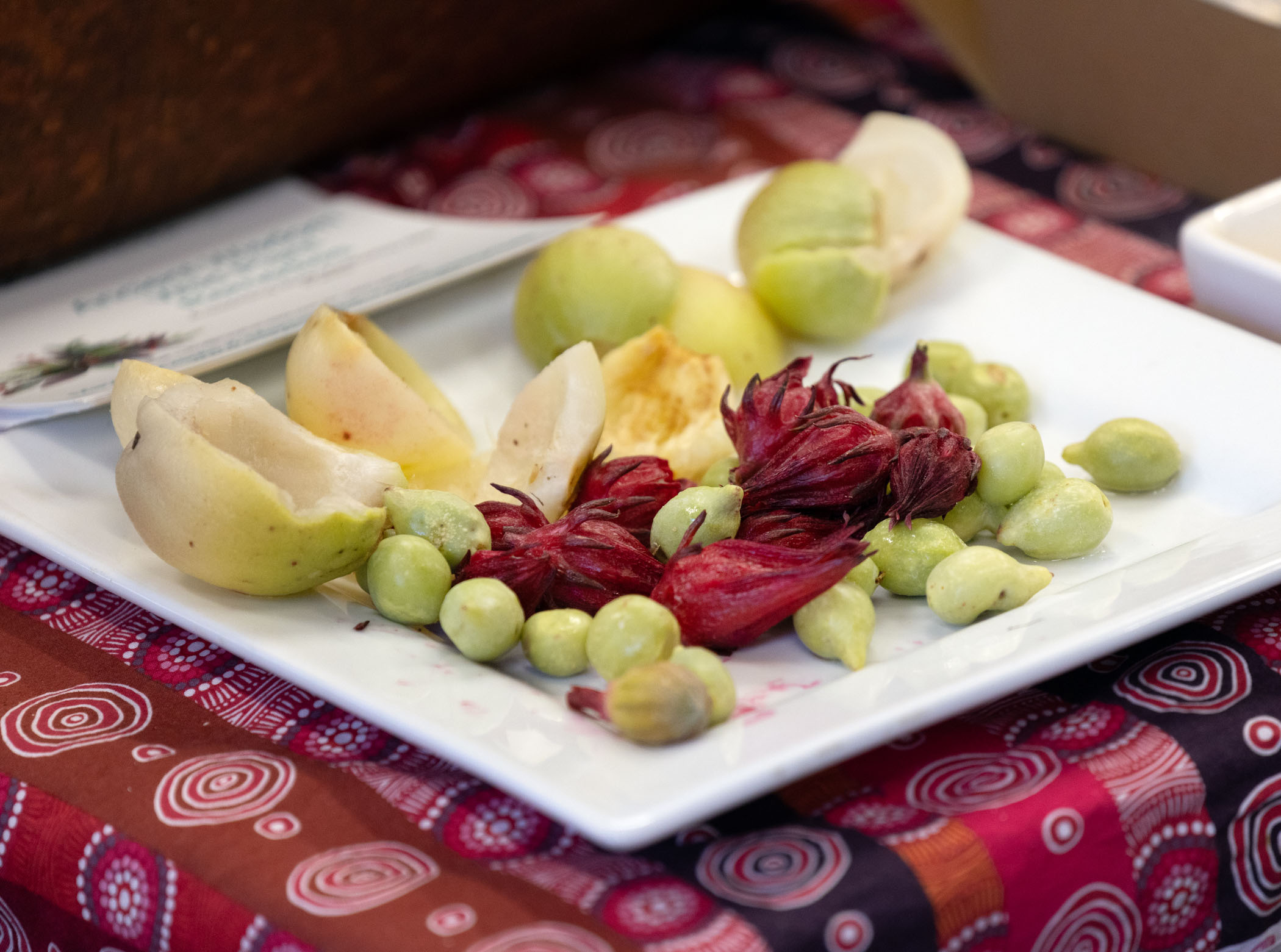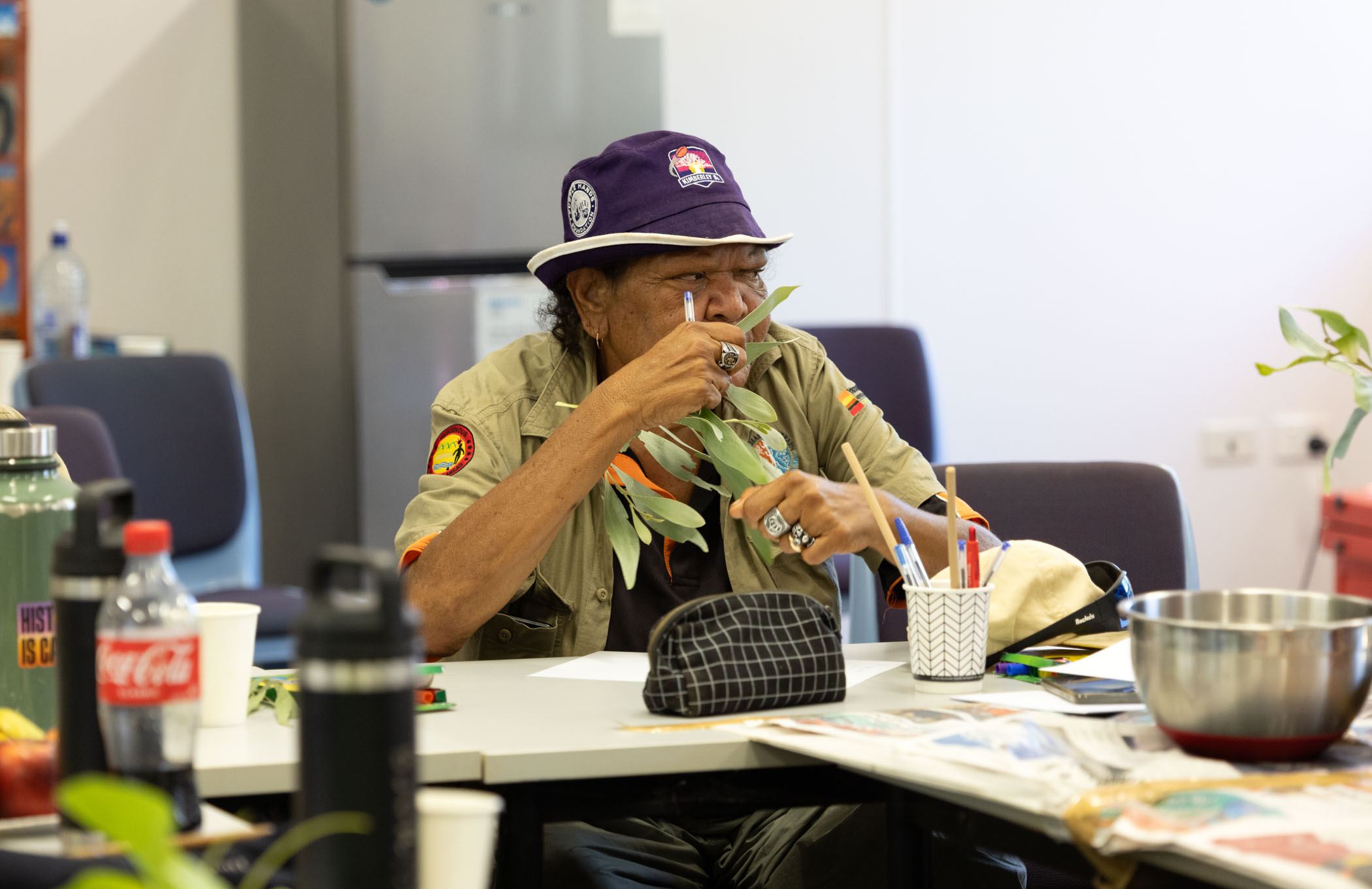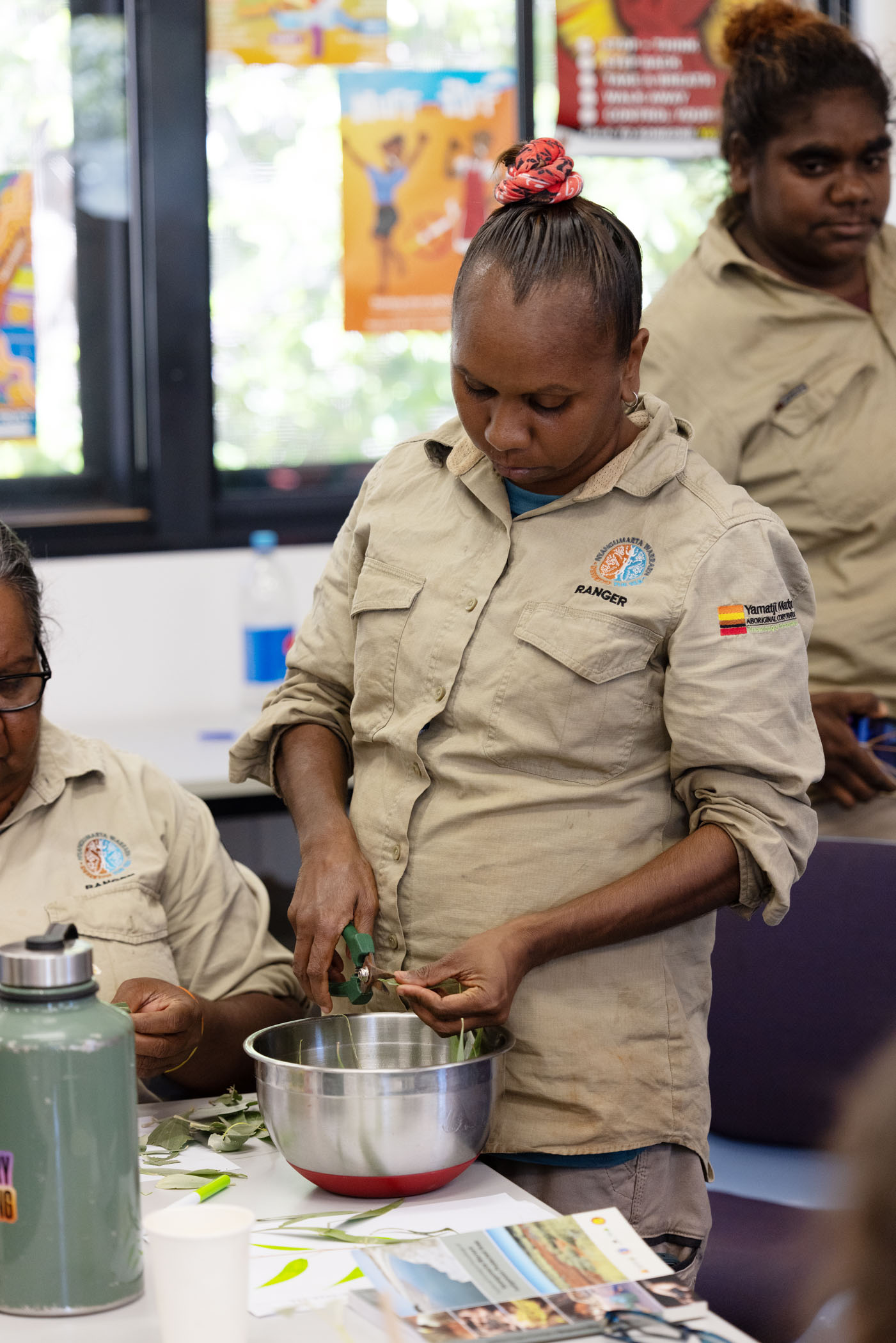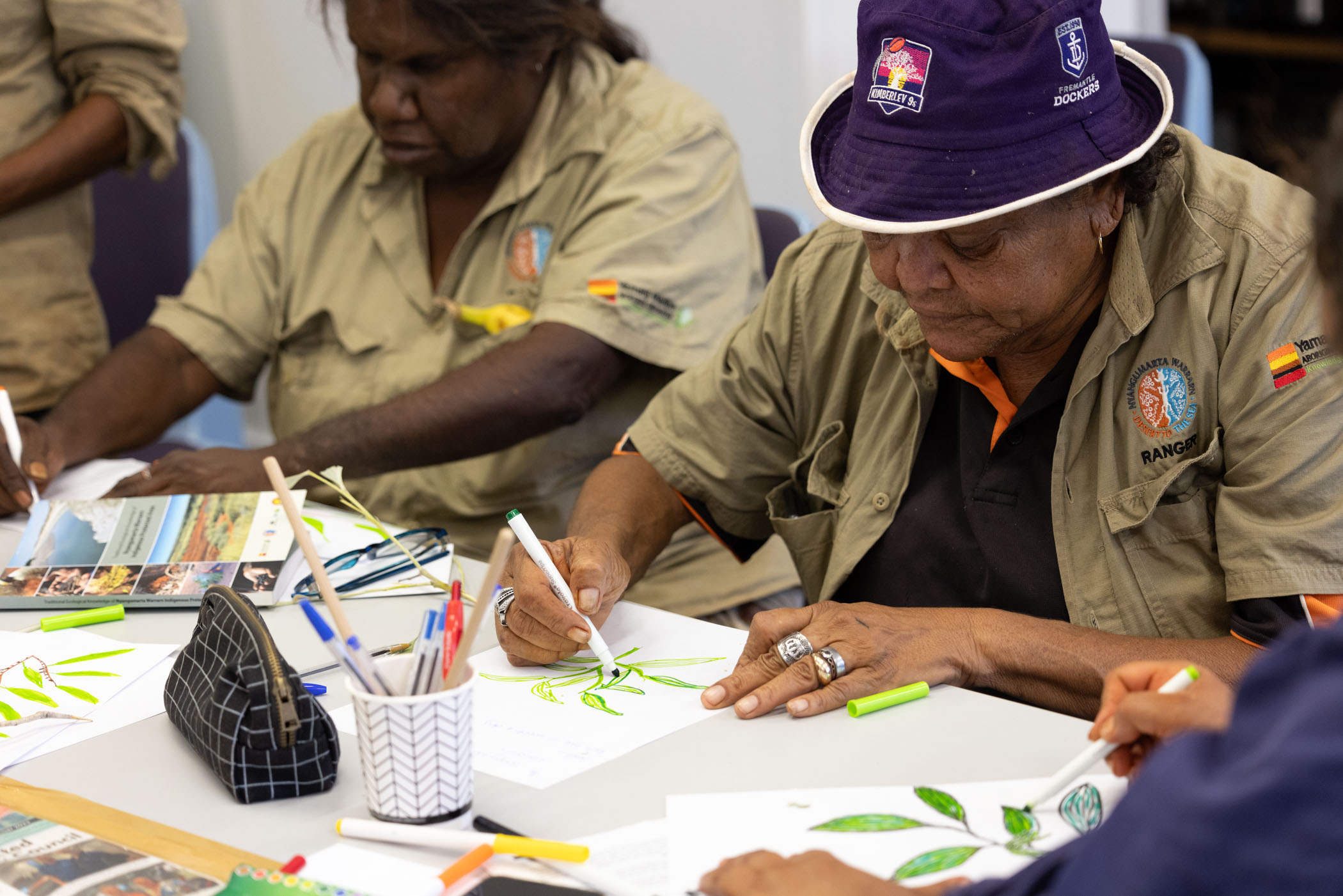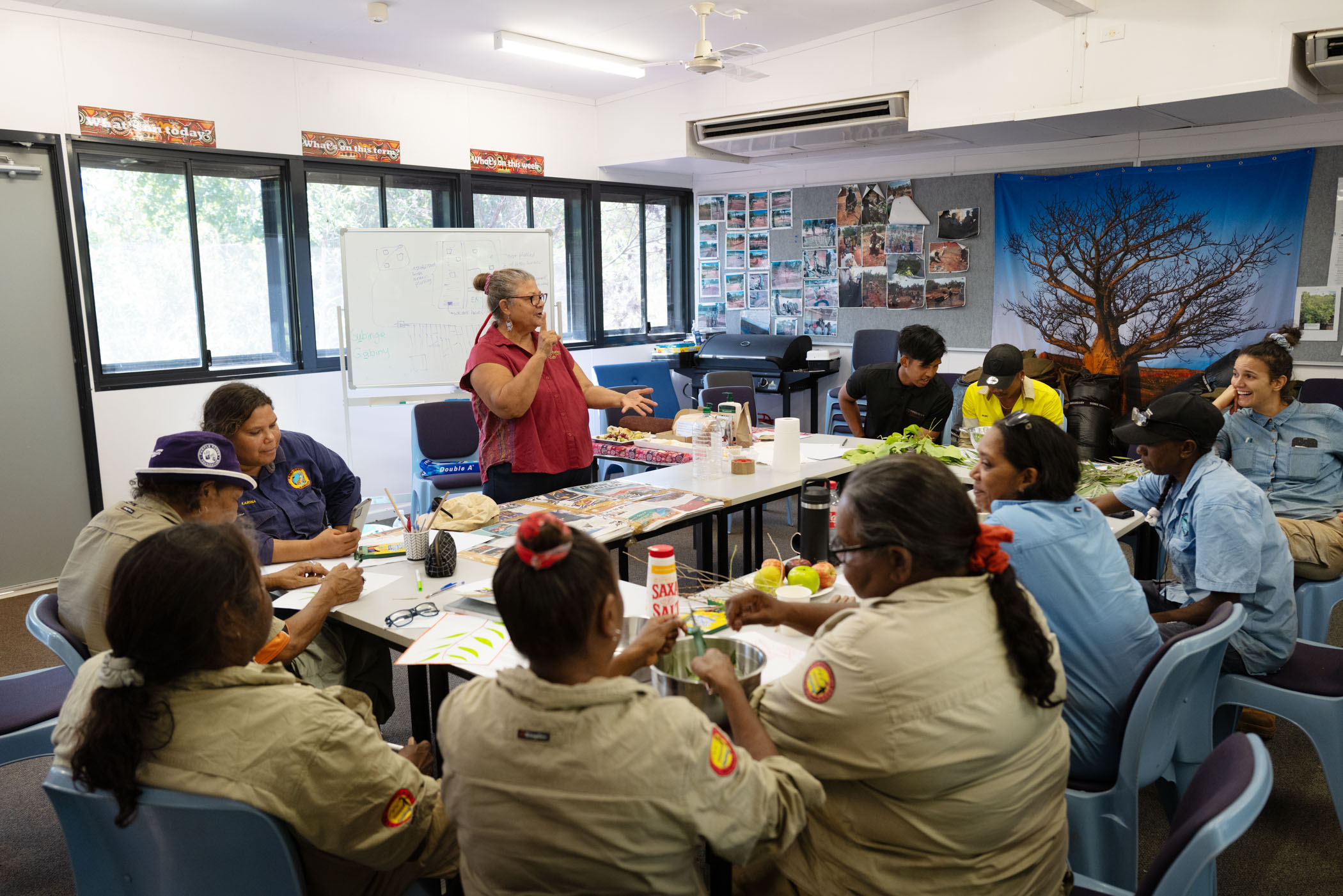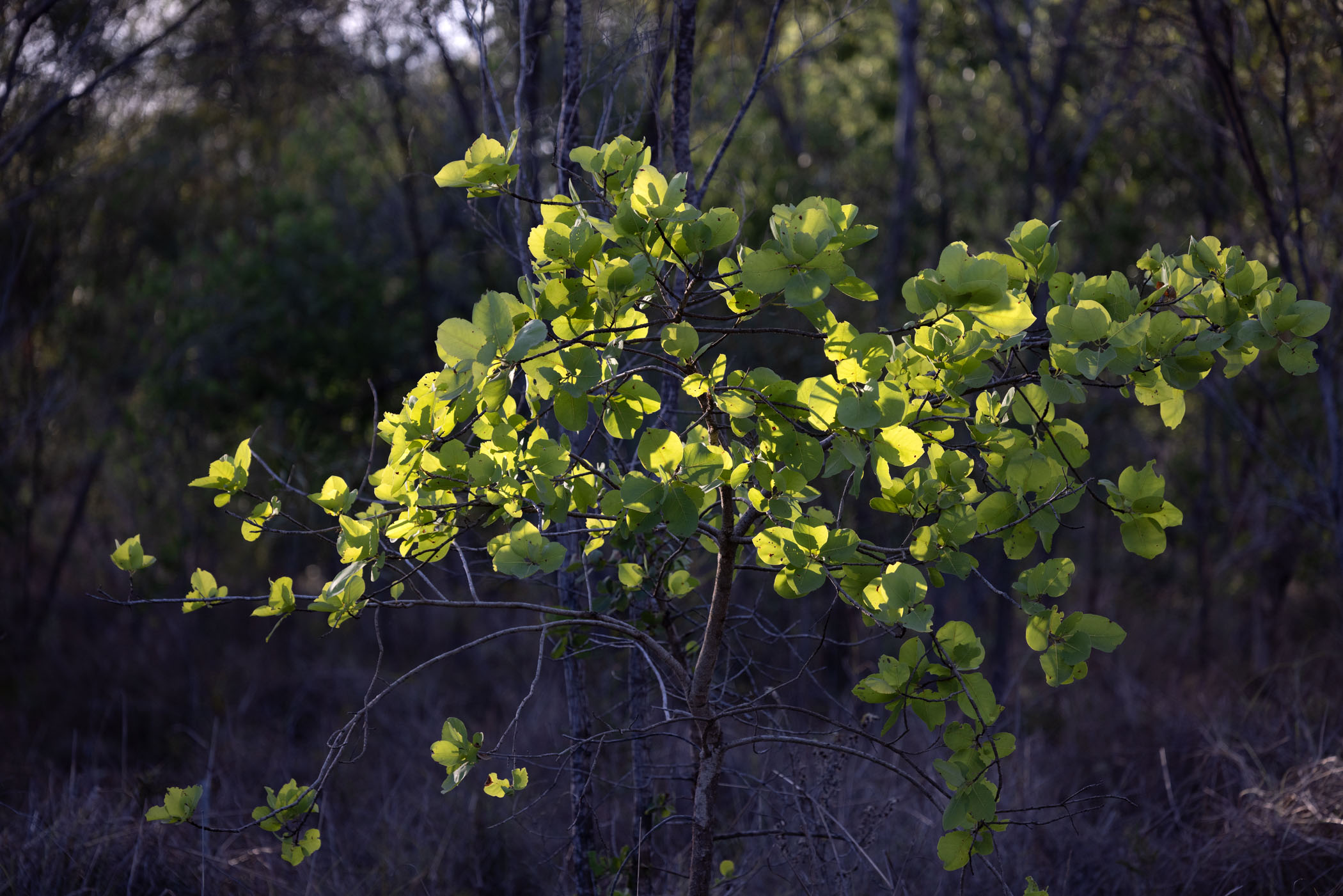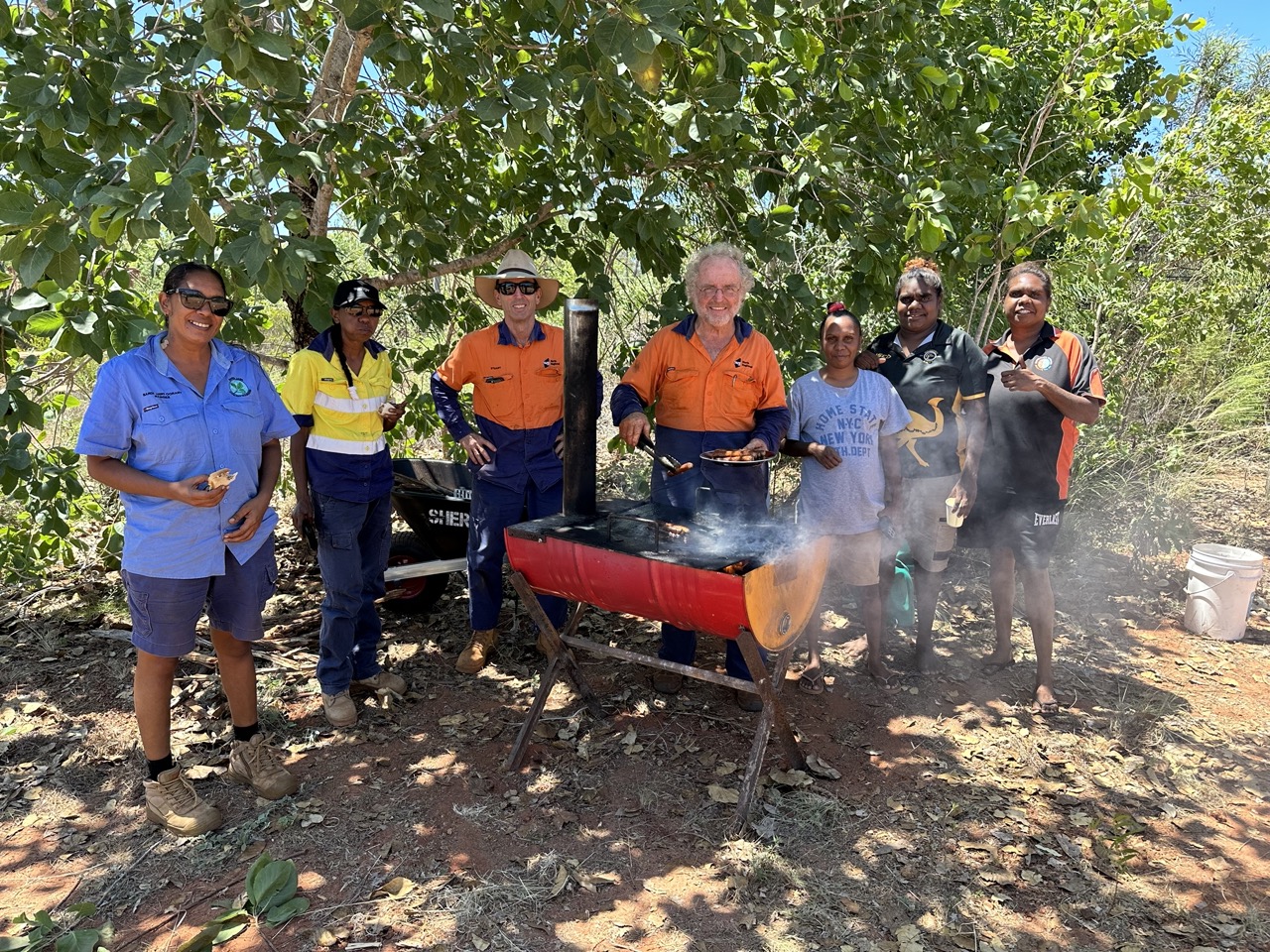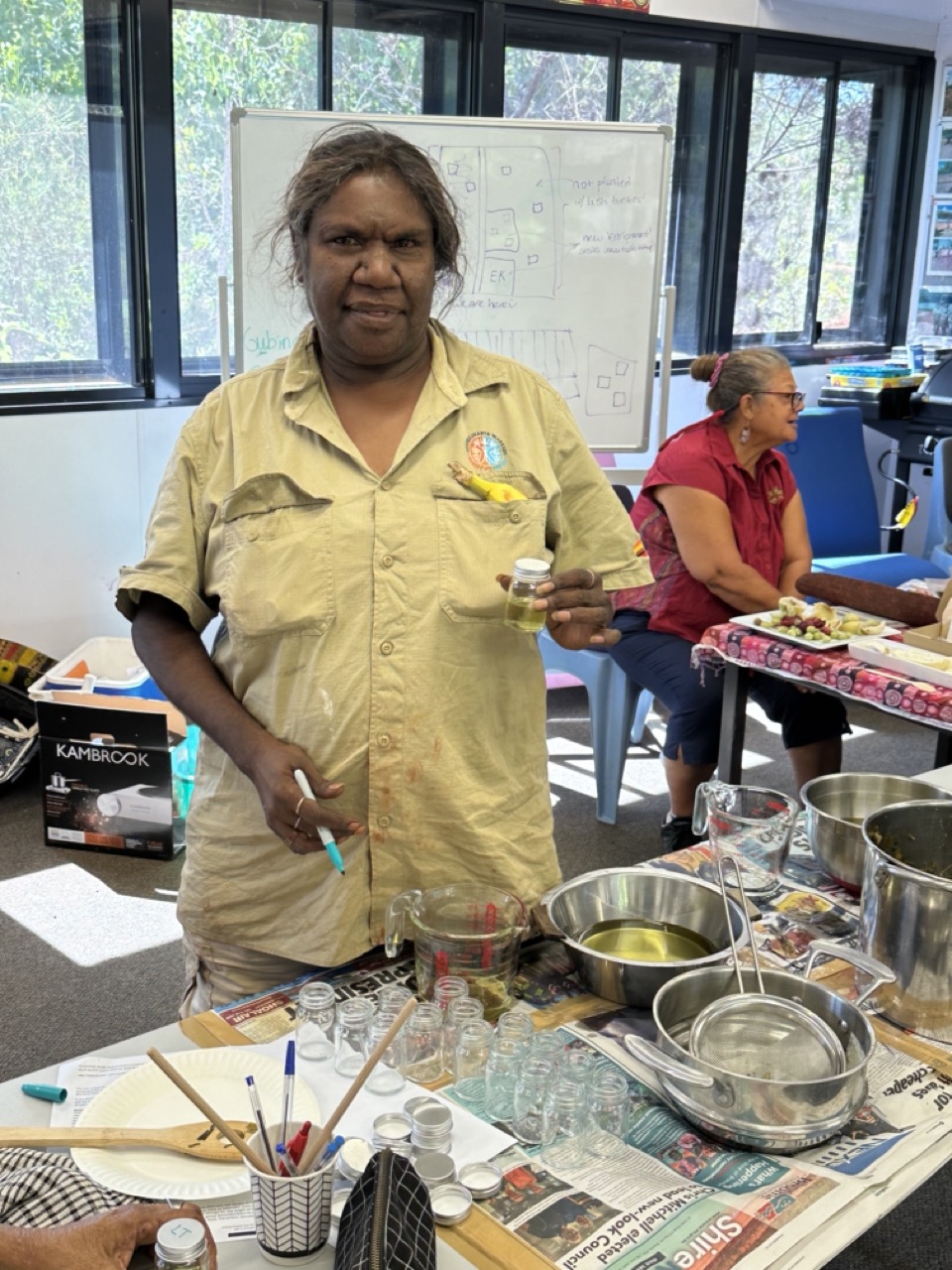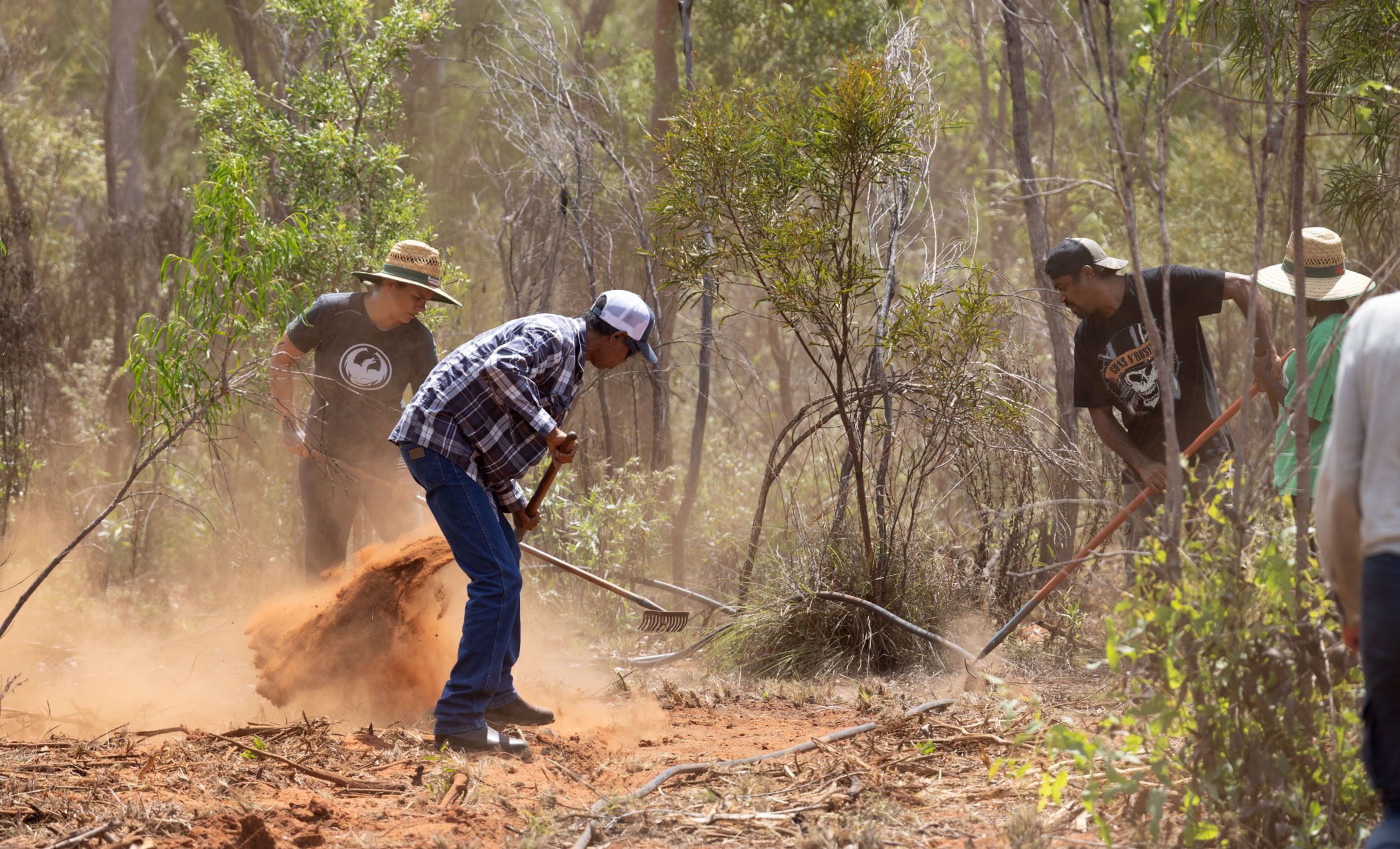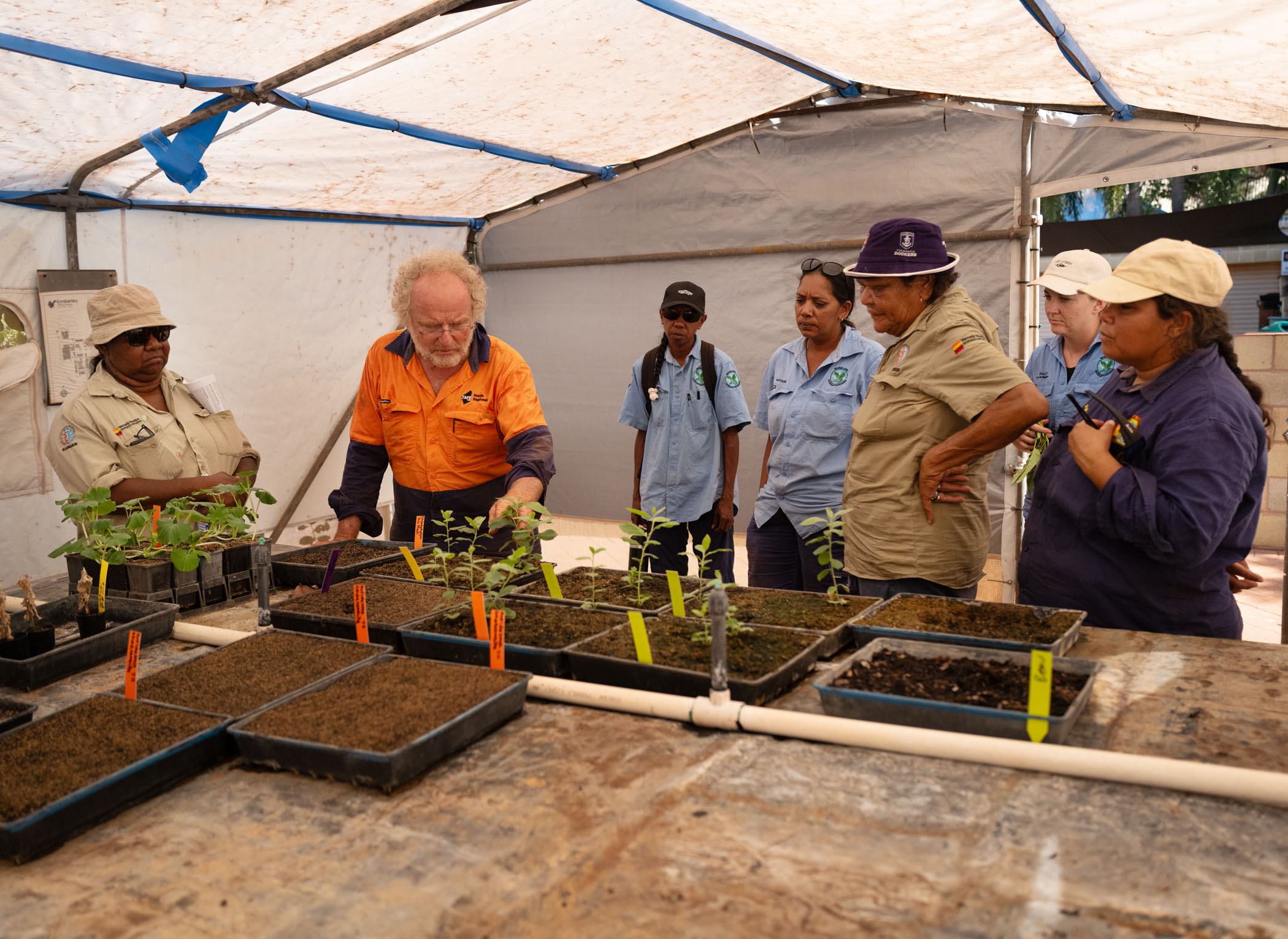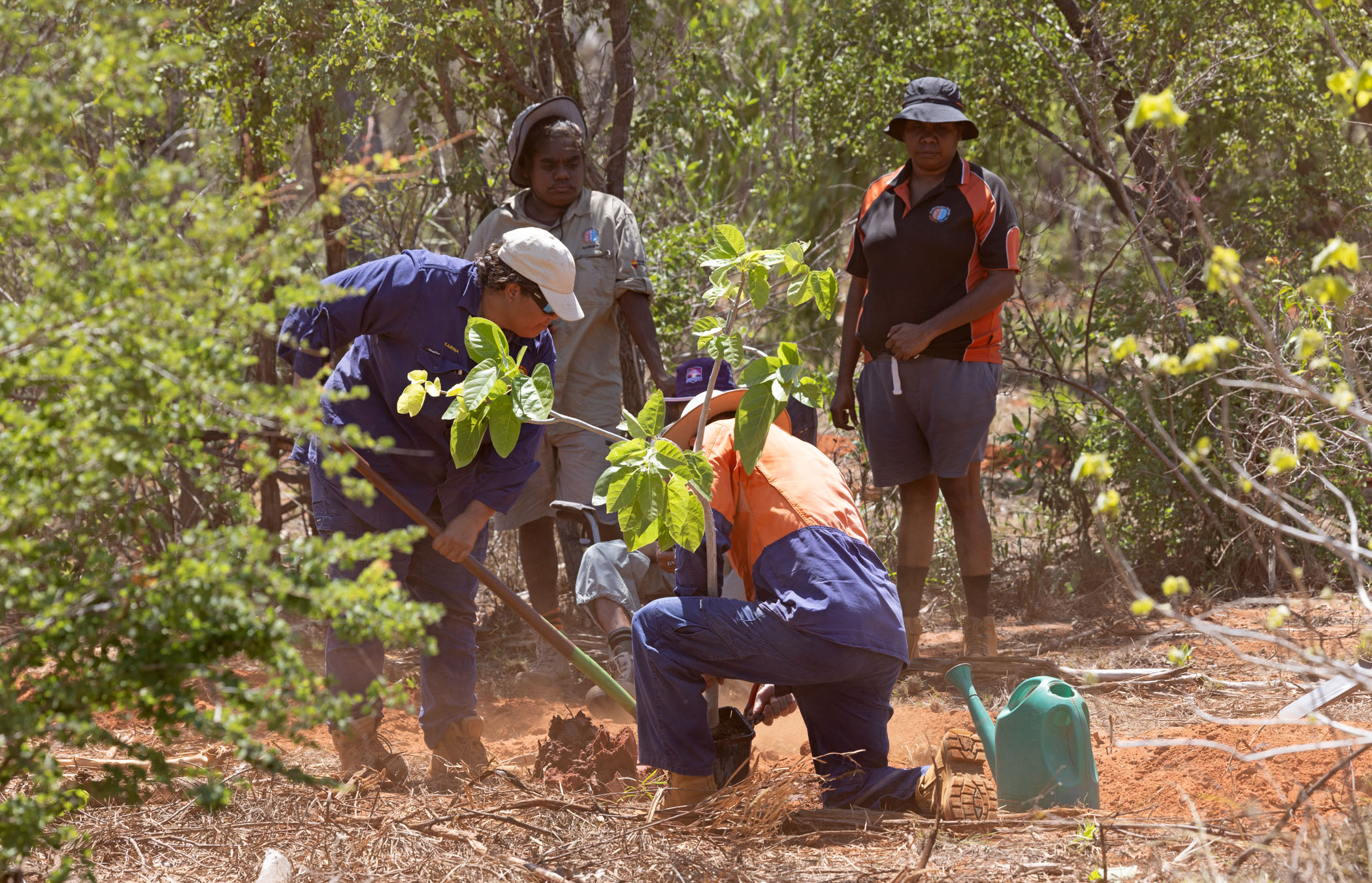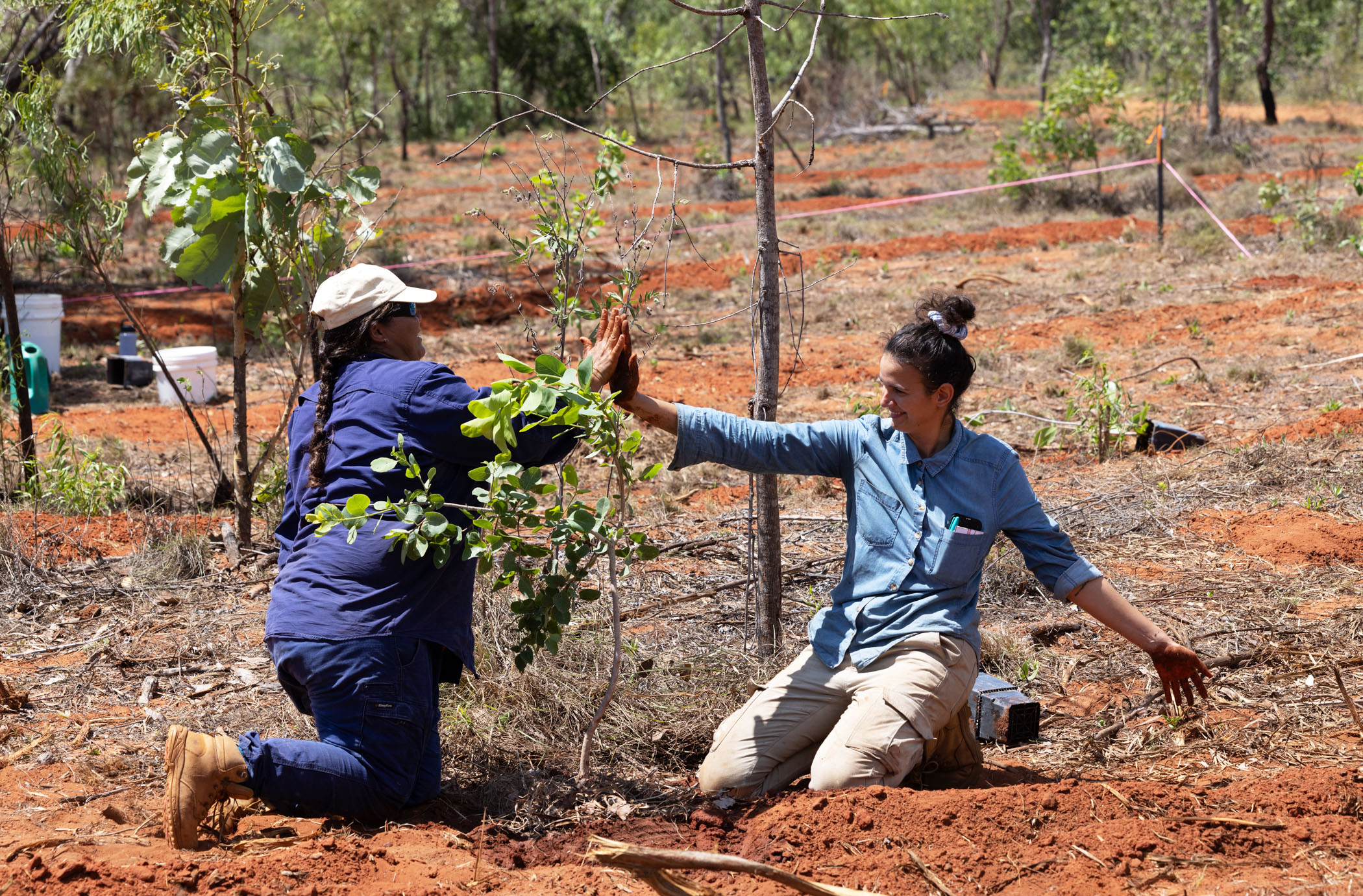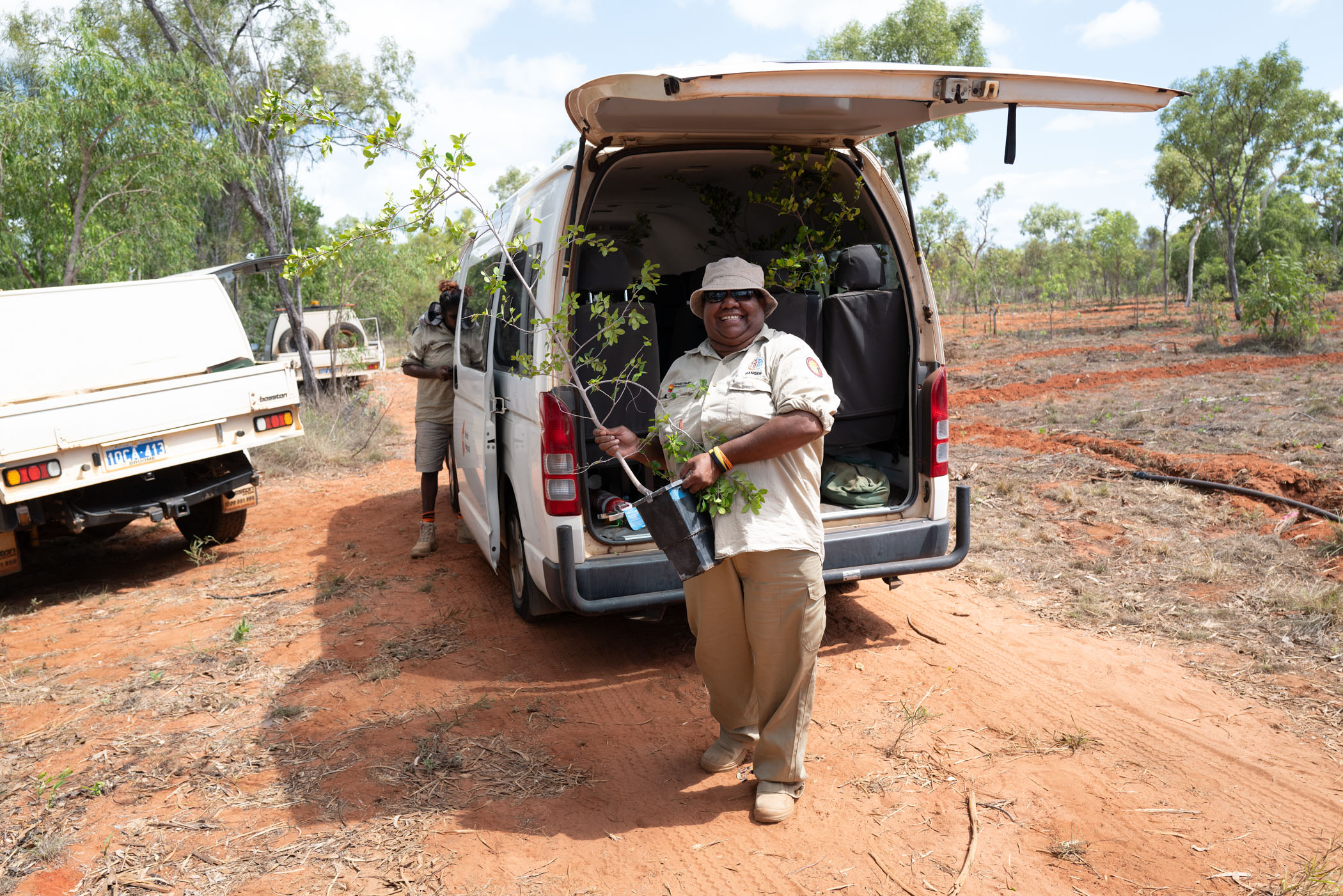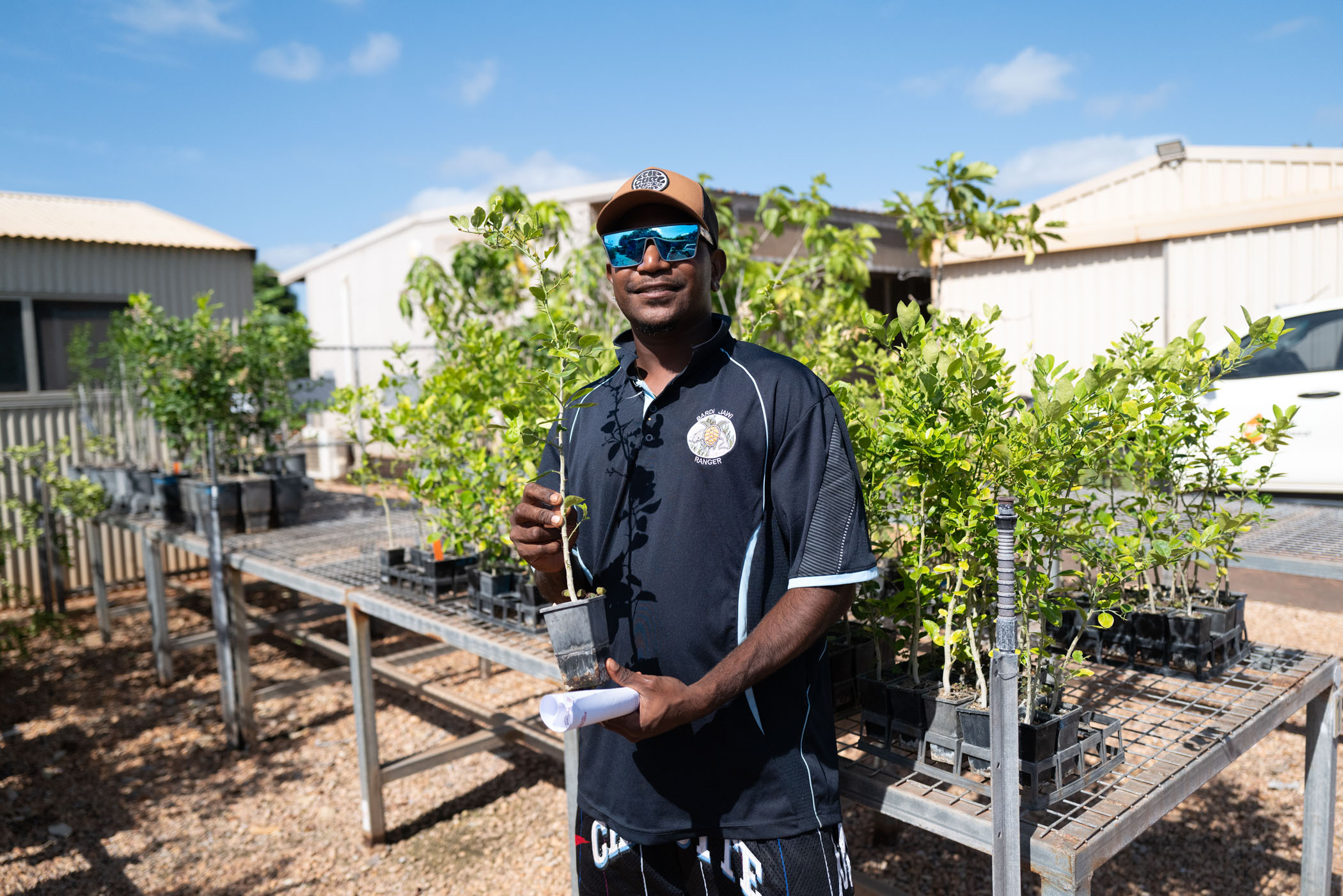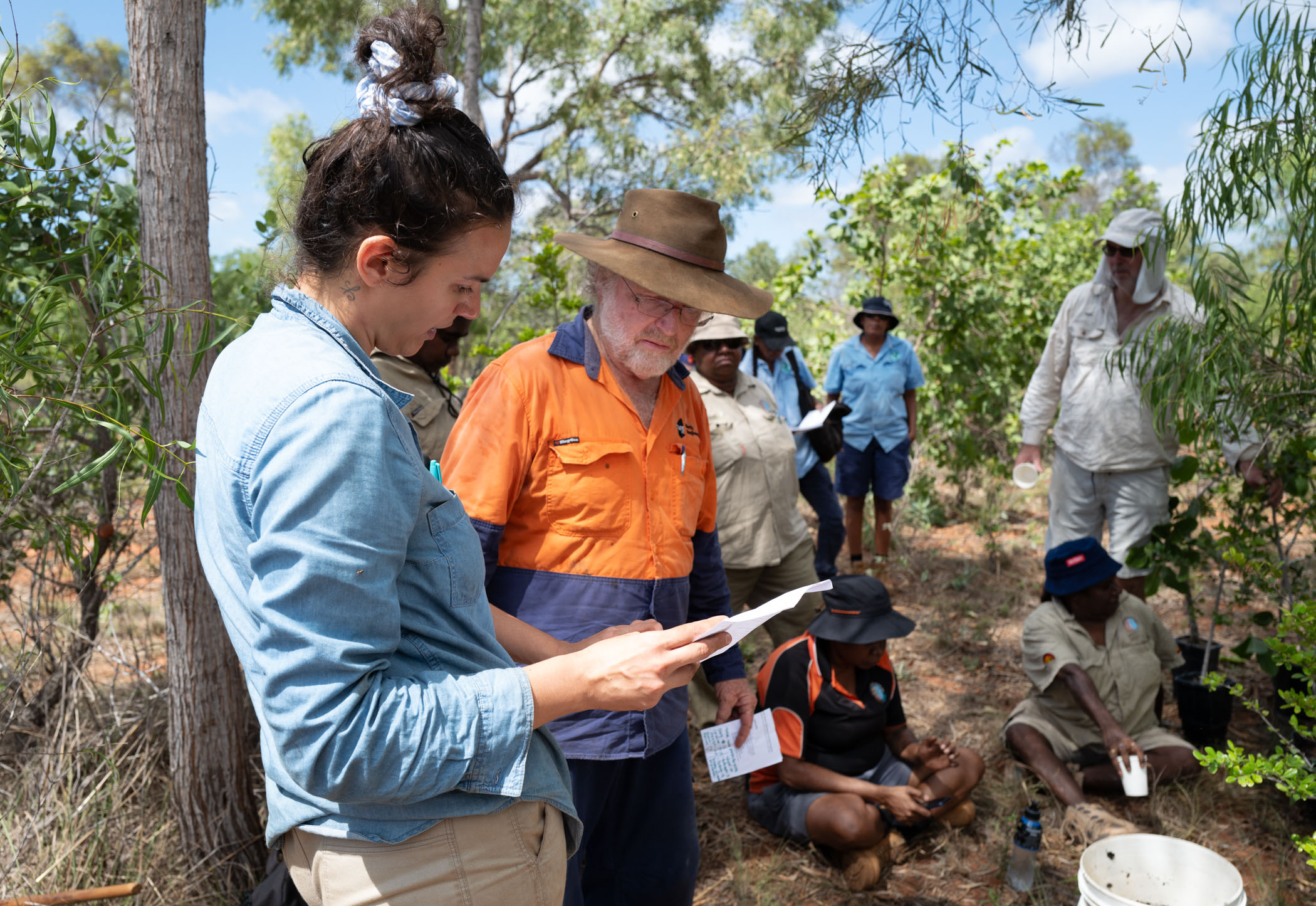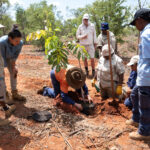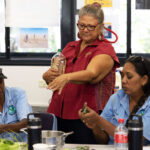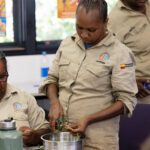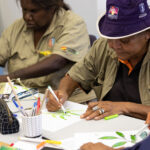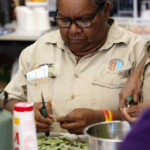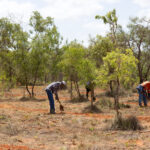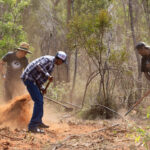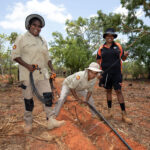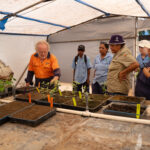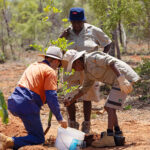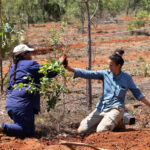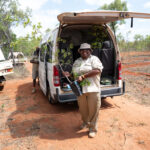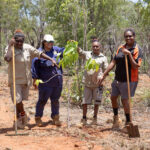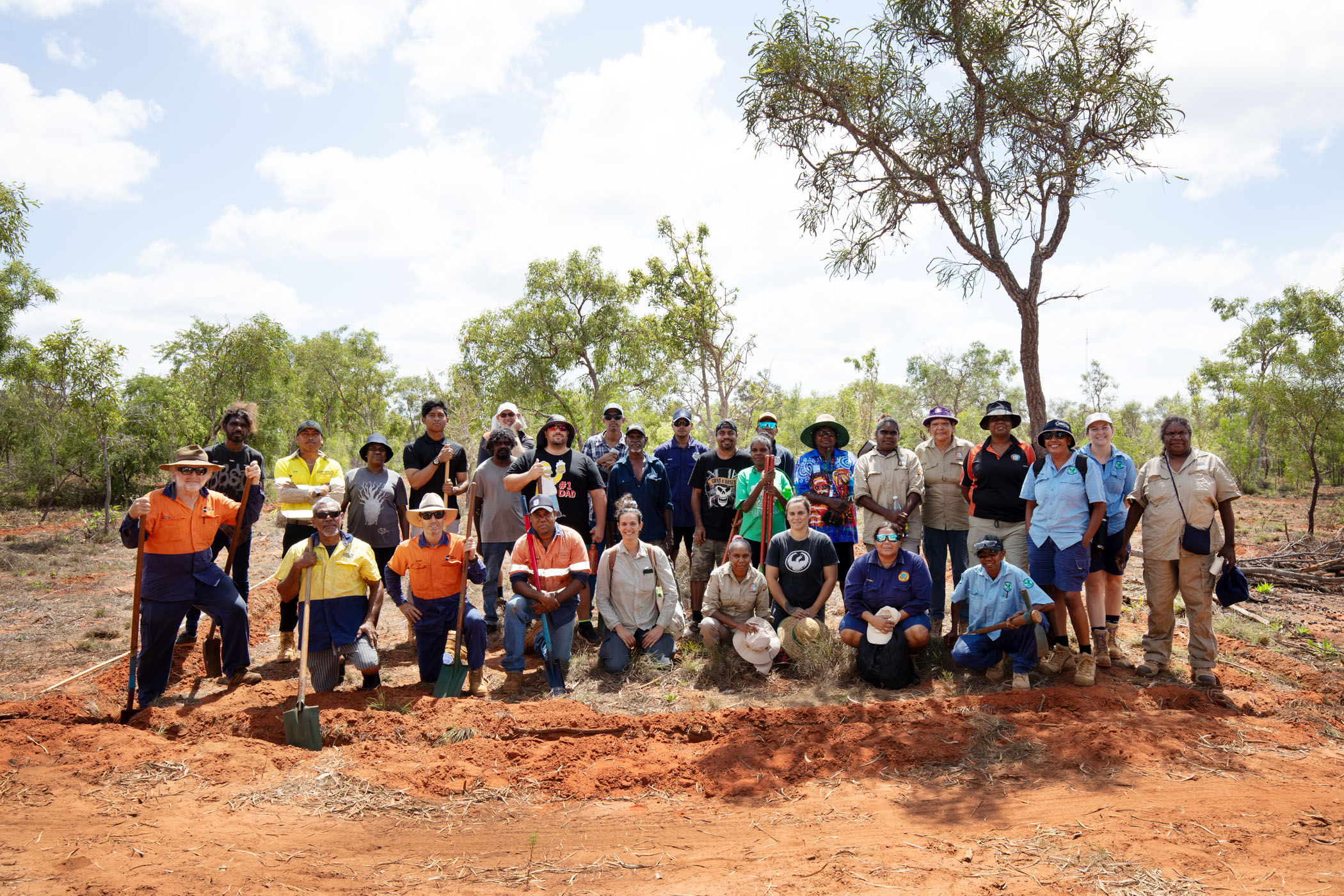A practical training program on the novel Savannah Enrichment model was carried out with Aboriginal Rangers in November as part of Murdoch University PhD candidate Sara Cavalcanti Marques’s research collaboration with North Regional TAFE. Savannah Enrichment is an emerging concept developed in the Kimberley to grow native bush foods and medicines within natural ecosystems, as a means to restore diversity in tropical savannahs and generate Indigenous enterprise development opportunities, enhancing livelihoods in remote areas. The model also demonstrates potential application in land management practices.
The course was held over two blocks at NR TAFE’s Balu Buru experimental training facility in Broome, where Horticulture lecturers Kim Courtenay and Stu Bonner delivered units critical to the implementation of the bush tucker model on-Country. Over 15 Aboriginal Rangers enrolled in the program from four West Kimberley Ranger groups (Nyangumarta, Karajarri, Bardi Jawi, Kimberley Mineral Sands), with up to 30 participating in the program’s activities when joined by Milliya Rumurra students. The course combined horticulture skills applied to conservation and land management and included a hands-on bush product development workshop with local Yawuru entrepreneur Pat Torres, all of which is of great relevance to Rangers keen to increase involvement in the sector.
Sara’s research explores the social and ecological benefits of incorporating native bush tucker cultivation to land stewardship practices, with a focus on assessing the Savannah Enrichment model for its potential use as a tool for restoration and carbon farming. This comes at a time where new remuneration pathways for critical land management activities create opportunities for Traditional Custodians caring for Country, but often lack sufficient emphasis on sociocultural considerations in addition to initiatives’ environmental targets. In parallel, the project seeks to tackle the need for sustainable models of bush food cultivation that not only meet the growing appetite globally, but that address the substantial gap in Indigenous leadership and participation in the industry. While anecdotal findings on the Savannah Enrichment model suggest promising outcomes, an academic assessment is currently lacking to evaluate its potential application in this context, preventing large-scale adoption. Sara’s study monitors existing enrichment trials and aims to co-design and implement new trials together with project partners.
The project has been shaped to meet the needs and wants of end-users on the ground, with an emphasis on benefit-sharing. The partnership developed with NR TAFE has enabled innovative academic research to be carried out alongside Vocational Education and Training, creating up-skilling opportunities for Indigenous students through the conduction of the PhD project. This was a way to hardwire accredited training into the execution of the research, contributing to the legacy of Rangers’ stewardship work and fostering the continuity of this work beyond the project’s timeframe. Sara now hopes to implement a follow-up case study where training is delivered on-Country to establish an Indigenous-led enrichment trial in community.

